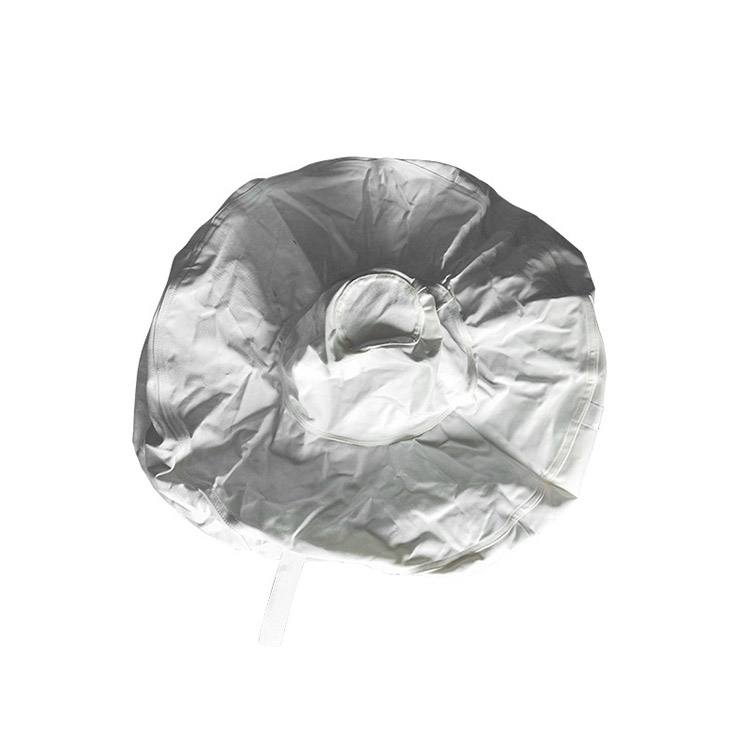What Makes Centrifugal Bags a Game-Changer for Industrial Filtration and Storage?
2025-10-17
Centrifugal bags have become a pivotal solution in modern industrial processes where efficiency, precision, and durability are paramount. Designed to handle high-speed rotation, heavy loads, and diverse material types, these bags are extensively used in sectors such as chemical processing, food production, pharmaceuticals, and wastewater management. The main purpose of this article is to provide an in-depth understanding of centrifugal bags’ functionality, advantages, technical specifications, and their role in driving industrial efficiency. By examining what they are, why they are preferred, and how they optimize operations, businesses can make informed decisions about integrating centrifugal bags into their production systems.
Centrifugal bags offer superior filtration, storage, and material handling capabilities compared to traditional containers. Their design enables consistent performance under high rotational forces while ensuring product safety, durability, and environmental compliance. This article will explore these advantages in detail, providing practical insights into why centrifugal bags are rapidly gaining traction in industries worldwide.
What Are Centrifugal Bags and How Do They Work?
Centrifugal bags are specialized containers designed to withstand high-speed rotational forces in centrifuges, separators, or other mechanical systems that require rapid spinning. Unlike conventional bags, they maintain structural integrity under extreme centrifugal pressure, ensuring materials remain contained and uncontaminated.
Working Principle:
-
The centrifugal bag is placed within a centrifuge drum or machine.
-
During rotation, the bag’s structure evenly distributes radial forces, allowing separation of solids from liquids or effective storage of sensitive powders.
-
Filtration layers integrated into the bag’s design capture impurities while maintaining fluid or powder flow efficiency.
Key Advantages of the Design:
-
High Durability: Resistant to tearing and deformation under centrifugal forces.
-
Chemical Compatibility: Made from materials that withstand corrosive or reactive substances.
-
Precision Filtration: Layers and mesh designs allow particle separation down to micro-level sizes.
-
Reduced Contamination Risk: Sealed design prevents leakage and cross-contamination.
Product Specifications:
| Parameter | Specification Example |
|---|---|
| Material Type | Polypropylene, Polyester, or Nylon |
| Maximum RPM | 15,000–25,000 |
| Temperature Resistance | -20°C to 150°C |
| Filtration Micron Rating | 1–200 μm |
| Bag Size Range | 5L–100L |
| Chemical Compatibility | Acids, Alkalis, Organic Solvents |
| Shelf Life | 5+ Years |
| Sealing Mechanism | Heat Seal / Zipper / Drawstring |
These specifications highlight how centrifugal bags are engineered to address demanding industrial applications with precision and reliability.
Why Are Centrifugal Bags Preferred Over Traditional Storage and Filtration Solutions?
The advantages of centrifugal bags are evident in both operational efficiency and cost-effectiveness. Traditional containers or filtration systems often require multiple steps, larger space, and higher maintenance. In contrast, centrifugal bags offer:
-
Space Efficiency: Compact design reduces storage and handling requirements.
-
Operational Speed: High-speed centrifugation reduces processing times for separation tasks.
-
Enhanced Safety: Minimizes exposure to hazardous materials for operators.
-
Reduced Waste: Durable construction allows multiple reuse cycles, lowering disposal costs.
-
Compliance and Standardization: Meets industrial hygiene and environmental regulations.
By integrating centrifugal bags into workflows, industries can maintain higher throughput without sacrificing quality or safety.
Common Application Scenarios:
-
Pharmaceutical Manufacturing: Separation of active ingredients and excipients with high precision.
-
Food and Beverage: Clarification of liquids like juices, syrups, and oils.
-
Chemical Industry: Handling corrosive or reactive compounds safely.
-
Wastewater Treatment: Filtration of sludge and particulates before further processing.
How Can Industries Optimize Operations Using Centrifugal Bags?
Optimizing centrifugal bag usage involves selecting the right bag type, ensuring proper installation, and monitoring performance. Key factors include:
-
Bag Selection: Based on material compatibility, temperature tolerance, and filtration requirements.
-
Proper Installation: Ensuring correct positioning in the centrifuge drum to prevent deformation or rupture.
-
Maintenance: Regular inspection for wear, microscopic tears, or chemical degradation.
-
Performance Monitoring: Tracking filtration efficiency and adjusting RPM or pressure settings as needed.
Tips for Maximum Efficiency:
-
Use layered or mesh bags for multi-stage filtration processes.
-
Combine centrifugal bags with pre-filters to extend lifespan and reduce maintenance frequency.
-
Implement color-coded or labeled bags to improve workflow management and prevent cross-contamination.
Centrifugal Bag Common Questions:
Q1: How long does a centrifugal bag typically last in industrial operations?
A1: The lifespan depends on usage intensity, chemical exposure, and rotational speed. On average, a well-maintained centrifugal bag lasts 5+ years. Using compatible materials and proper handling can extend durability significantly.
Q2: Can centrifugal bags handle highly corrosive chemicals?
A2: Yes, centrifugal bags made from polypropylene, polyester, or chemically resistant nylon can manage acids, alkalis, and organic solvents. It is crucial to select a bag with verified chemical compatibility to avoid degradation.
Future Trends and SMCC’s Role in Advancing Centrifugal Bag Technology
The industrial filtration and storage sector is evolving, with centrifugal bags playing a central role in innovation. Future trends include:
-
Smart Materials: Incorporation of sensors to monitor bag integrity and filtration efficiency in real-time.
-
Eco-Friendly Solutions: Biodegradable or recyclable materials to reduce environmental impact.
-
Customization: Industry-specific designs for pharmaceuticals, food, and chemicals.
-
Automation Integration: Compatibility with automated centrifuges and robotic handling systems.
SMCC continues to lead the market by offering advanced centrifugal bags designed for high performance and reliability. The brand emphasizes precision engineering, durability, and compliance with industry standards, ensuring that clients achieve optimal operational efficiency. By adopting SMCC centrifugal bags, industries benefit from cutting-edge materials, rigorous quality control, and tailored solutions for diverse applications.
For inquiries, product specifications, or consultation on integrating centrifugal bags into production workflows, contact us today to explore customized solutions that meet your operational needs.
